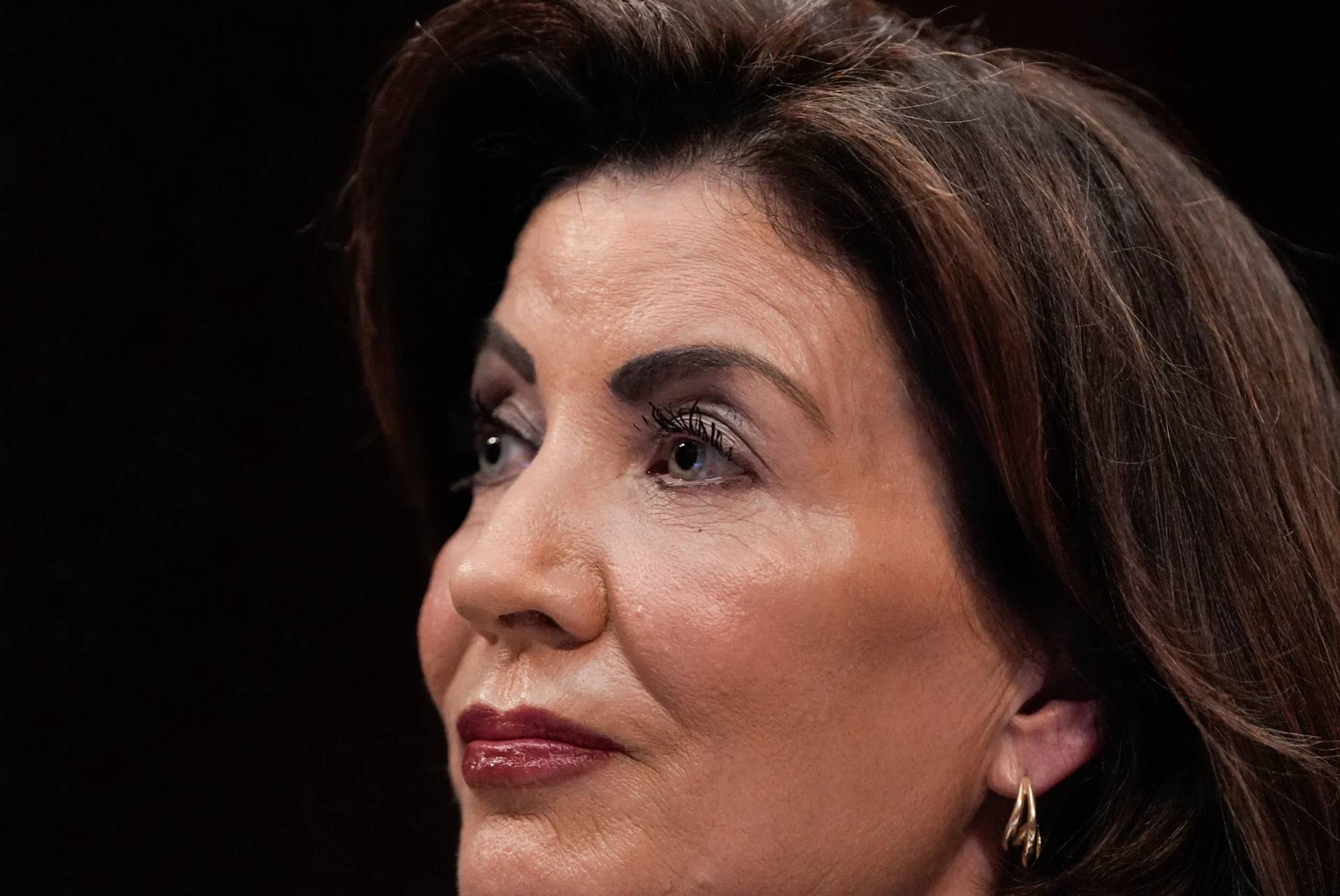MEXICO CITY — In his first homily as archbishop of Mexico City, Cardinal Carlos Aguiar Retes urged unity, promised humility and promoted social ministries. He also called for Catholics in the Mexican capital to create a “humanized” city — served by one of the largest archdioceses in the world and at the heart of a country currently consumed by crime, corruption and inequality.
“Today we are overwhelmed by situations that violate justice and peace; aggressions that denigrate our condition as brothers and that foster a life of confrontation, discrimination, contempt for human dignity and that lead to anguish,” Aguiar said at a Feb. 5 Mass following his installation.
“More than ever, we need to, from a perspective of faith … rebuild our society’s way of life, giving generously of ourselves — like past generations did — to support the social and pastoral projects we need to carry out in order to leave new generations a humanized and humanizing city.”
Aguiar arrives in Mexico City as Catholics there confront the challenge of serving a flock increasingly alienated from the church hierarchy. It’s a hierarchy that critics say has served elites’ interests, not put a priority on social ministries and failed to show a friendly face.
The Archdiocese of Mexico City, with nearly 9 million inhabitants, presents unique challenges for the new archbishop.
Parts of the city have become increasingly cosmopolitan and left-leaning, while wide swaths of struggling working-class residents find refuge in popular religion, such as venerating St. Jude Thaddeus, patron saint of impossible causes, and worshiping the skeletal Santa Muerte, which Catholic leaders condemn as Satanic.
Census data show 83 percent of Mexicans still profess Catholicism, though the figure is falling fast in Mexico City.
Aguiar succeeds Cardinal Norberto Rivera Carrera, who submitted his resignation upon turning 75, as required by canon law. Rivera claimed success after 22 years of leading the Mexico City Archdiocese, telling Aguiar in his final statement as archbishop: “I leave you a united archdiocese, full of faith, moved by hope and participating in charity for the least protected.”
Catholics supporting Rivera say he supported education, opened a seminary to train priests for serving migrant communities in the United States and worked with a wealthy church backer to provide priests with proper medical care.
He could be controversial, however, and he was often mocked in the Mexico City media. He defended the Legionaries of Christ, whose founder fathered children and sexually abused seminarians and, critics contend, did not properly report cases of clerical sexual abuse to the civil authorities — a charge Rivera has repeatedly denied.
Rivera consistently spoke out against controversial social policy changes in Mexico City — ruled by left-leaning governments since 1997 — including laws approved in the late 2000s to decriminalize abortion and allow same-sex marriages. Aguiar has called overturning Mexico City’s abortion law a priority.
Rivera also communicated through editorials in a diocesan publication. One editorial questioned who had advised the pope on Mexican matters after Pope Francis, visiting Mexico, urged bishops to confront Mexico’s crises of crime and drug cartel violence.
Aguiar alluded to disunity in his homily and cited the pope’s 2016 address.
“May your gaze, rested always and only on Christ, be able to contribute to the unity of the people, favoring reconciliation of differences and integrating their diversity … of helping to find shared and sustainable solutions for their miseries,” Aguiar said.
Known as a pastor, but also a man of politics, Aguilar previously led the Mexican bishops’ conference and the Latin American bishops’ council, CELAM.
While head of the Mexican bishops, he organized the church response to the Mexico City initiative to decriminalize abortion and successfully worked with prominent politicians on a constitutional change to allow for increased religious liberty.
Citing the example of the archdiocesan patron, St. Felipe de Jesus, Mexico’s first martyr, Aguiar promised to further pursue increased religious liberty. Mexico’s Church was persecuted in the 1920s Cristero Rebellion and was forced to exist without legal status or state recognition until Mexico and the Vatican established relations in 1992.
Shouts of Viva Cristo Rey — the Cristero battle cry — were heard at his installation. The bells of the Metropolitan Cathedral also were sounded for the first time since the Sept. 19 earthquake that rocked the capital and damaged the cathedral.
Aguiar promised to celebrate Sunday services at the Basilica of Our Lady of Guadalupe, a more easily accessible sanctuary than the Metropolitan Cathedral.
Some observers saw the move as populist and an attempt to promote the profile of the new cardinal and promote increased proximity with the people. Others said Aguiar would easily win over people with his personality and pastoral approach.
“He’s a very charismatic individual,” who believes in empowering the work of laypeople, said Chicago Cardinal Blase J. Cupich, who attended the installation and said he wanted to revive a past cooperation agreement with the Archdiocese of Mexico City.
“He’s an active person,” Cupich added. “He knows how to get things done.”

















